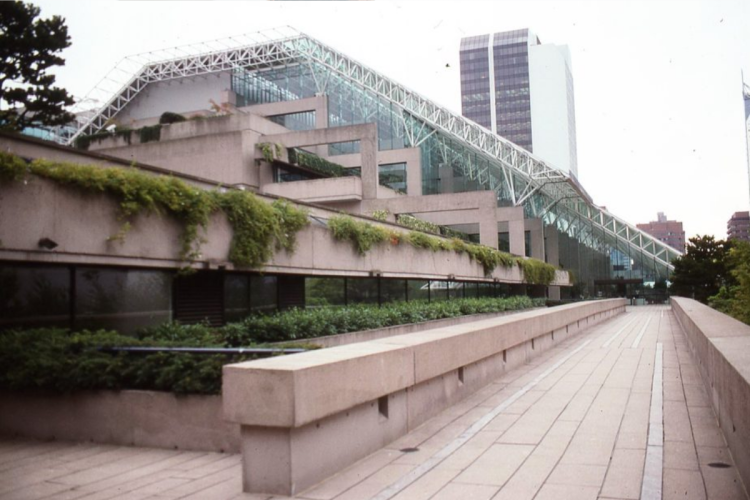Federal court rebukes patent owner for “unfair” business practices

Authors: Gregory Forrest, Andy Chow
In Canada, it’s common for patent prosecution to take a number of years – but patent applicants may feel a greater sense of urgency in light of a recent court decision.
On November 25, the Federal Court of Canada released its decision in Rovi Guides, Inc. v. Bell Canada. Rovi, the plaintiff, accused Bell and TELUS of infringing on its patented technology and sought an accounting of profits from the defendants and an injunction on them using the technology. But the Court denied Rovi, noting the plaintiff had failed to prosecute its patents “diligently.”
Defendants began using Rovi technology in 2010
Beginning in 2010, Bell and TELUS both began using Microsoft Mediaroom, which included technology licensed by Rovi, in their interactive television program guides. When Mediaroom was sold to Ericsson in 2013, the Rovi licences did not transfer.
While patents for Rovi’s technology were pending, Rovi attempted to negotiate a portfolio licence and more favourable licence agreements with Ericsson, Bell and TELUS. Meanwhile, Bell and TELUS continued using Mediaroom and earning profit, which eventually led to Rovi’s claim.
The Federal Court found that there was nothing new or inventive about Rovi’s patents as of the date they were filed, and the patents were therefore invalid. However, the Court went on to offer a rebuke of Rovi’s delays in patent prosecution and contract negotiations in obiter.
A “clear pattern of delay”
While Rovi was attempting to negotiate new contracts with Bell and TELUS, it continued to delay its patent prosecutions in order to amend its patent claims. Many of the Rovi patents in this case took years to issue – including one patent that was issued 17.5 years after the initial application.
The Court found this gave Rovi an unfair advantage because the allegedly infringed patents had not been issued while contract negotiations with Bell and TELUS were taking place.
“When considered as a whole, the clear pattern of delay and the late amendments to some of [Rovi’s] patents leads inexorably to the conclusion that delay in prosecution of the patents was a deliberate and integral part of Rovi’s business strategy,” the Court wrote in its decision.
The Court also noted that Rovi did not advise Bell and TELUS of certain patents it had applied for, giving the defendants no way of knowing they might one day be accused of infringing those patents.
“Rovi’s delay in issuing the patents and its sly conduct during negotiations allowed Bell and TELUS to fully integrate the allegedly patented technology into their IPTV systems, and gain millions of customers, before many of the asserted claims existed, let alone before the patents were issued,” the Court found.
Although the Court concluded that Rovi was delaying, the decision was based on testimony from Mr. Armaly, which admitted that he is not an expert on Canadian patent prosecution. It is not uncommon in Canada to wait until deadlines to request examination and respond to Examiner’s Reports. Typically, Canadian patent agents wait until the corresponding U.S. application has received allowance before requesting examination in Canada for prosecution efficiency and cost reasons. It was also not brought to the attention of the Court that patent agents and examiners normally have a large number of applications and they must balance the need to promptly respond with a number of competing deadlines.
Moreover, much of the delay was a result of the CIPO and not Rovi. For example, Canadian patent 2336870, which had the 17.5 year pendency, experienced delays of 9.7 years due to delays by the patent office and only 6.9 years as a result of Rovi. This figure includes the 5 year period to request examination. Excluding the request for examination period, Rovi delayed only 2 years.
The “patent holdup” problem
The Court noted this case exemplified the “patent holdup” problem, in which a patent owner “takes advantage of the potential infringer’s reduced flexibility after they have launched a product and opportunistically tries to extract a larger unreasonable licensing fee.”
Granting an accounting of profits or an injunction to Rovi would effectively condone Rovi’s business practices and possibly encourage other patent owners to pursue similar tactics, the Court noted.
“Engaging in patent holdup is a business practice this Court should not condone and the Canadian patent system should not be creating incentives for such unfair practices to occur,” the Court found.
While the Court may not condone the “patent holdup” problem, the fact remains that Rovi’s business practices are common in the Canadian patent system. Whether this ruling will have a chilling effect on patent applicants using similar tactics remains to be seen. If you have questions about how this decision could affect your business, contact a member of our Patents, Copyrights and Industrial Designs team.
Note: This article is of a general nature only and is not exhaustive of all possible legal rights or remedies. In addition, laws may change over time and should be interpreted only in the context of particular circumstances such that these materials are not intended to be relied upon or taken as legal advice or opinion. Readers should consult a legal professional for specific advice in any particular situation.



